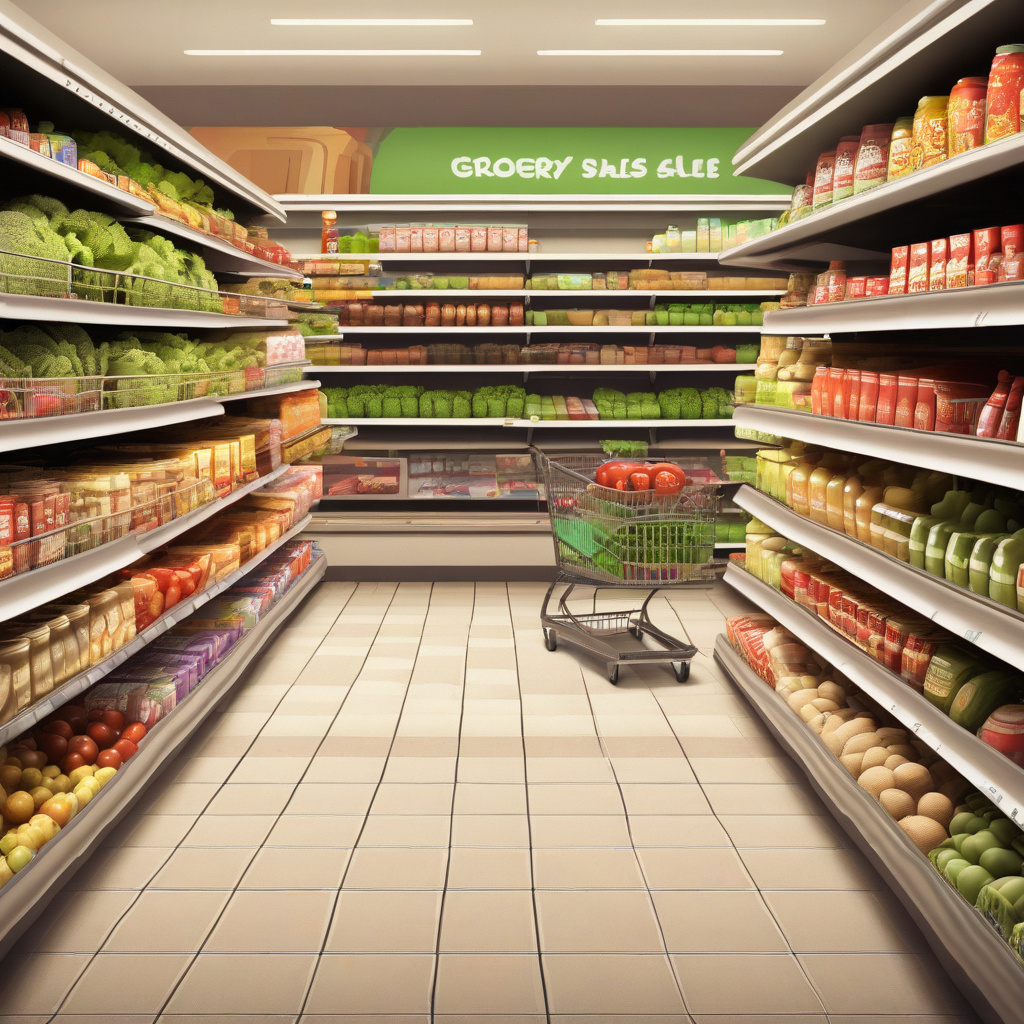Grocery Sales Experience a Decline Last Month: A Detailed Analysis
In the realm of retail, the grocery sector has long been considered a stable and essential component of the market. However, recent trends have indicated a shift in consumer behavior that has impacted grocery sales. According to the latest government data, grocery sales experienced a noticeable decline last month. This downturn has prompted retailers to reevaluate their strategies and prioritize promotions and sales in an effort to entice customers.
Several factors could have contributed to this decline in grocery sales. One significant aspect to consider is the current economic climate. With uncertainties looming and financial constraints affecting many individuals, consumers are becoming more cautious with their spending habits. As a result, they may be opting for more budget-friendly options or cutting back on non-essential purchases, including groceries.
Additionally, the rise of e-commerce and online grocery shopping has presented traditional brick-and-mortar stores with fierce competition. Online retailers often offer convenience, competitive pricing, and a wide selection of products, making them an attractive choice for many shoppers. The convenience of having groceries delivered to their doorstep or ready for pickup has appealed to consumers, further impacting in-store sales.
To counteract this decline, many retailers have ramped up their promotional efforts and sales strategies. By offering discounts, BOGO deals, and loyalty rewards programs, they aim to capture a larger share of the market and retain customer loyalty. These promotions not only attract budget-conscious consumers but also serve as a means to differentiate themselves from online competitors.
Moreover, retailers are leveraging data analytics and consumer insights to tailor their promotions to meet the evolving needs and preferences of their target audience. By understanding consumer behavior and shopping patterns, they can create personalized offers that resonate with shoppers, ultimately driving sales and fostering customer loyalty.
One successful example of a retailer adapting to these changing trends is Kroger, a prominent grocery chain in the United States. Kroger has implemented a data-driven approach to enhance its promotions and sales strategies. By analyzing customer data and purchase history, Kroger can offer personalized discounts and recommendations to shoppers, creating a more engaging and rewarding shopping experience.
In conclusion, the recent decline in grocery sales highlights the shifting dynamics of the retail landscape. As consumers become more selective about their purchases and increasingly turn to online options, retailers must adapt their strategies to remain competitive. By focusing on promotions, sales, and personalized offerings, grocery stores can navigate these challenges and thrive in an ever-changing market.
Ultimately, the key to success lies in understanding consumer behavior, leveraging data-driven insights, and implementing innovative strategies that resonate with today’s shoppers.
#grocerysales #retailtrends #salesstrategies #consumerbehavior #retailcompetition
